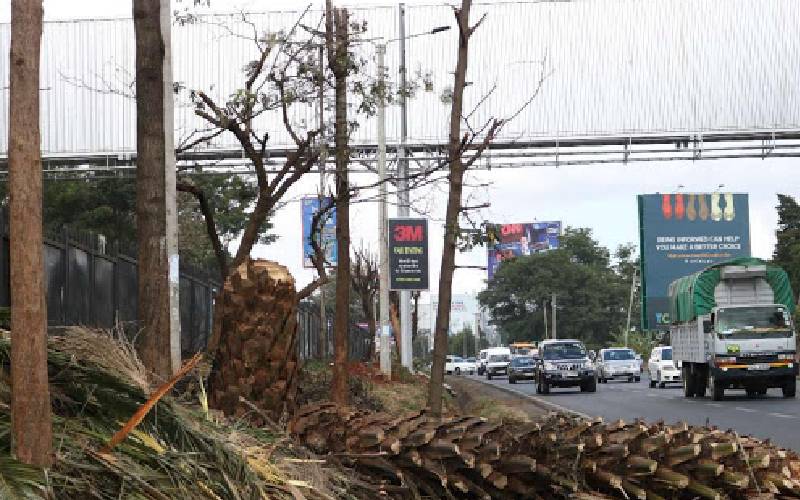×
The Standard e-Paper
Join Thousands Daily

Some of the trees that were cut along Waiyaki Way.
This week the world’s focus was on the Scottish city of Glasgow for the COP26 in a make or break gathering to mitigate effects of climate change.